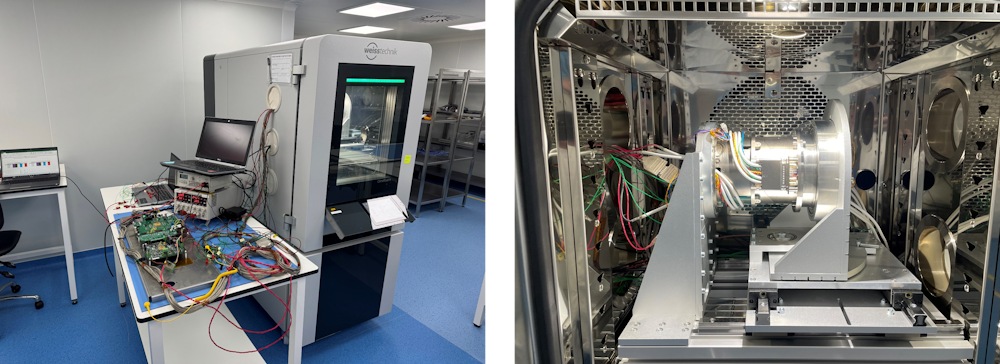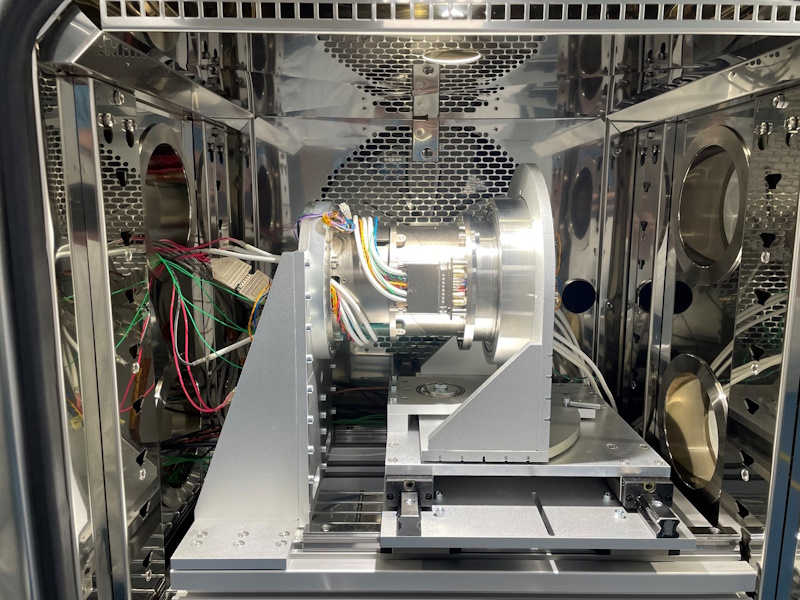HOTDOCK Successfully Passes Thermal Testing

Space Applications Services has successfully completed thermal testing of the HOTDOCK device in its SCHUMANN refuel configuration. The test was performed in standalone mode within our in-house Thermal Chamber.
Throughout the entire operational thermal range — from -40°C to +70°C — HOTDOCK’s electro-mechanical systems remained fully functional, confirming its robust performance under extreme temperature conditions representative of space environments.
HOTDOCK is now ready for delivery to ArianeGroup for integrated functional Thermal Vacuum (TVAC) testing with refueling operations, a major step toward enabling future robotic refueling missions.
Contact
"*" indicates required fields
More News

GMV Deploys SCHUMANN EQM Software Solution on Flight-Ready OBC
GMV has successfully deployed the software solution for SCHUMANN EQM testing on a flight-ready On-Board Computer (OBC). The software, based on ESROCOS tools, automates test sequence operations, including: Valve control for refueling sequences Pressure sensor monitoring for real-time data analysis ESROCOS is an open-source framework designed for safe, reliable, and efficient space applications. It integrates […]

SCHUMANN DSSCK/RESONANCE Software Beta Released
We are excited to announce that the SCHUMANN DSSCK/RESONANCE software tool has been officially released in Beta by our partners FZI and ReOrbit. Following a successful internal testing phase within the SCHUMANN Consortium, we have now opened access to external partners and commercial space entities. RESONANCE is designed to support functional satellite module design and […]

HOTDOCK Successfully Passes Thermal Testing
Space Applications Services has successfully completed thermal testing of the HOTDOCK device in its SCHUMANN refuel configuration. The test was performed in standalone mode within our in-house Thermal Chamber. Throughout the entire operational thermal range — from -40°C to +70°C — HOTDOCK’s electro-mechanical systems remained fully functional, confirming its robust performance under extreme temperature conditions […]



